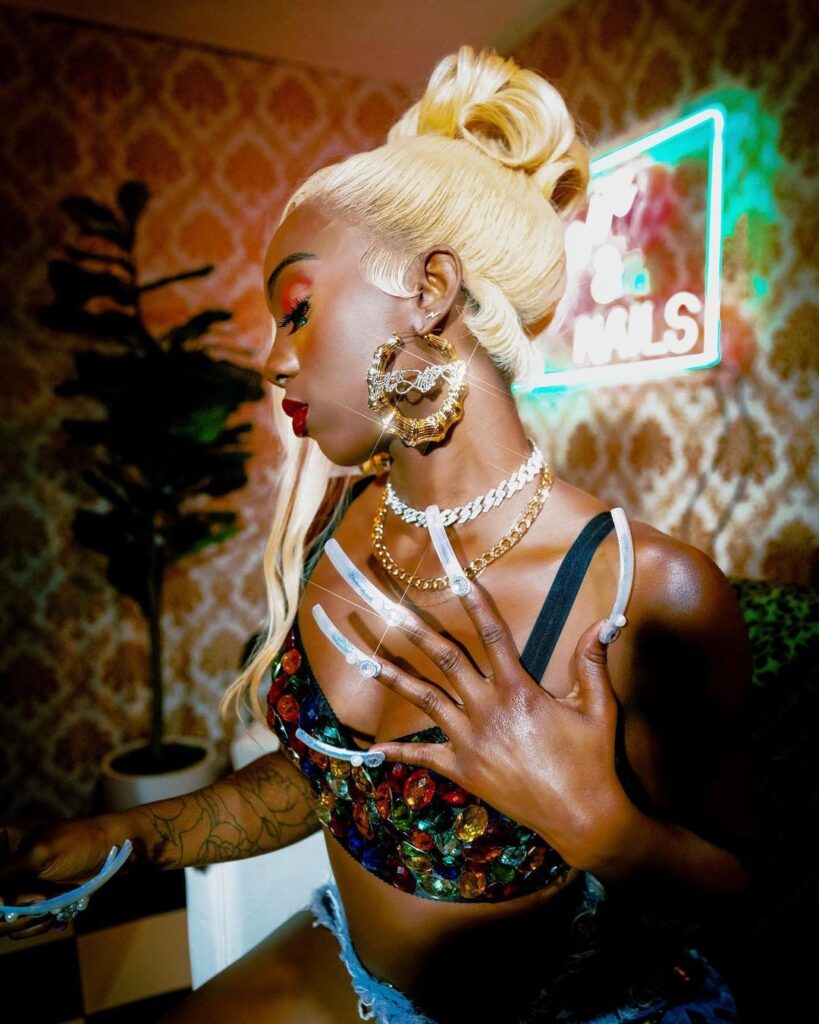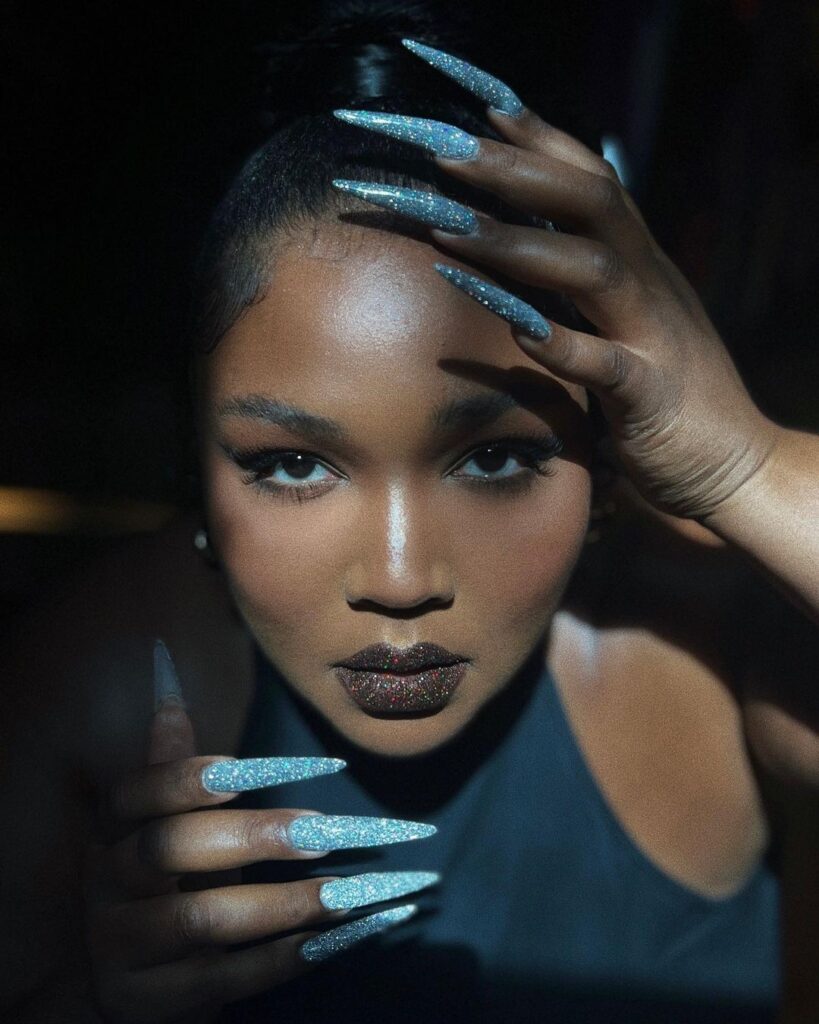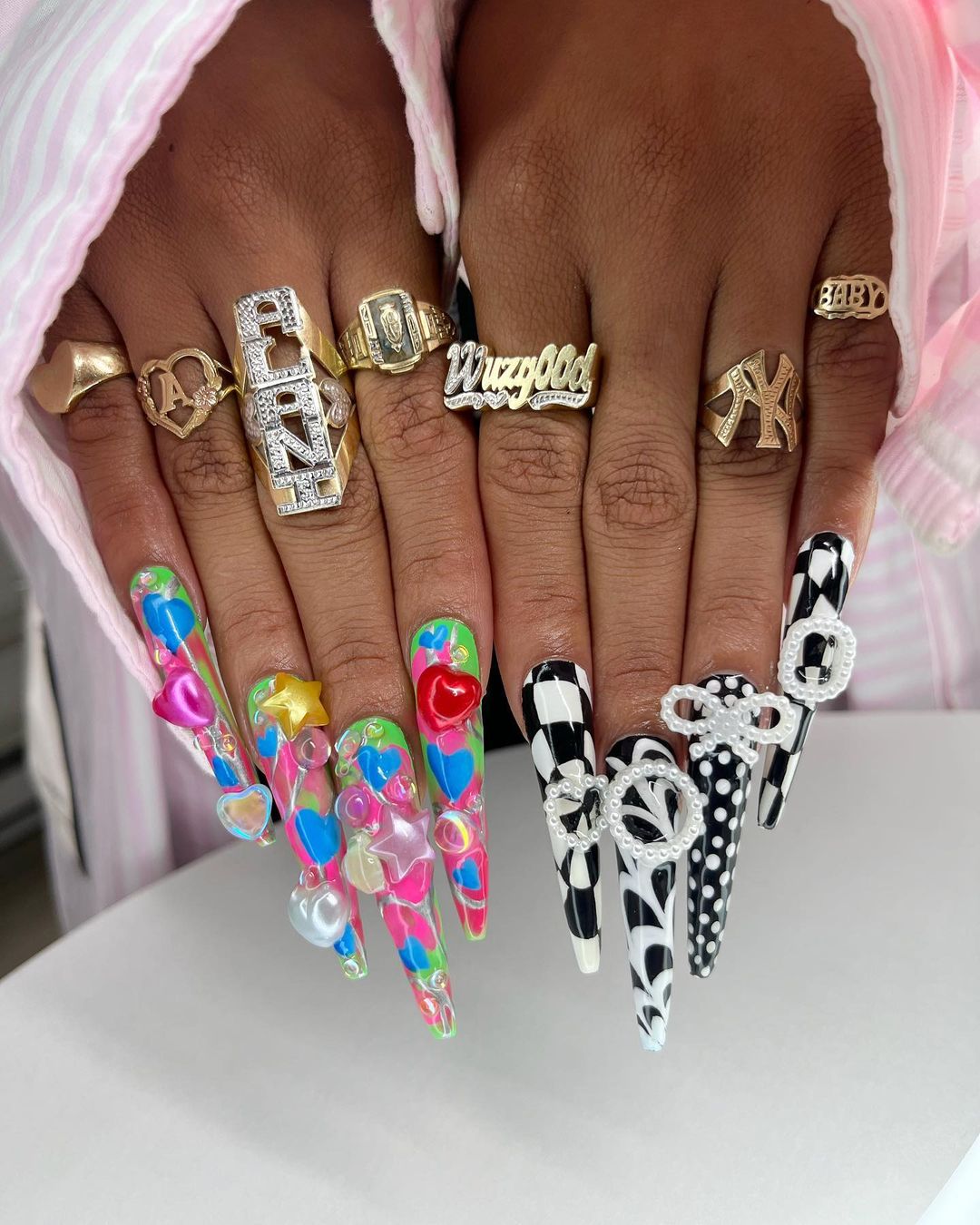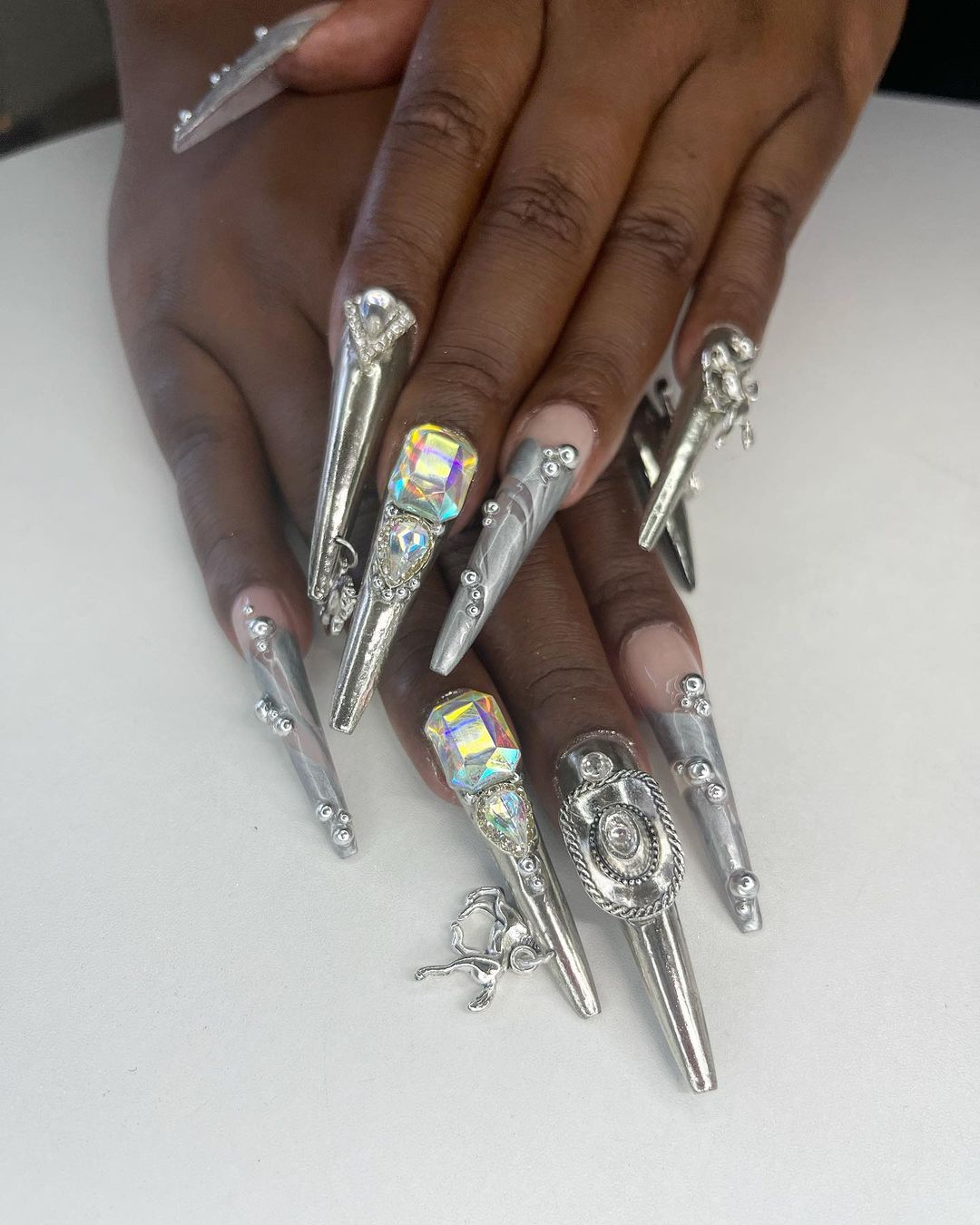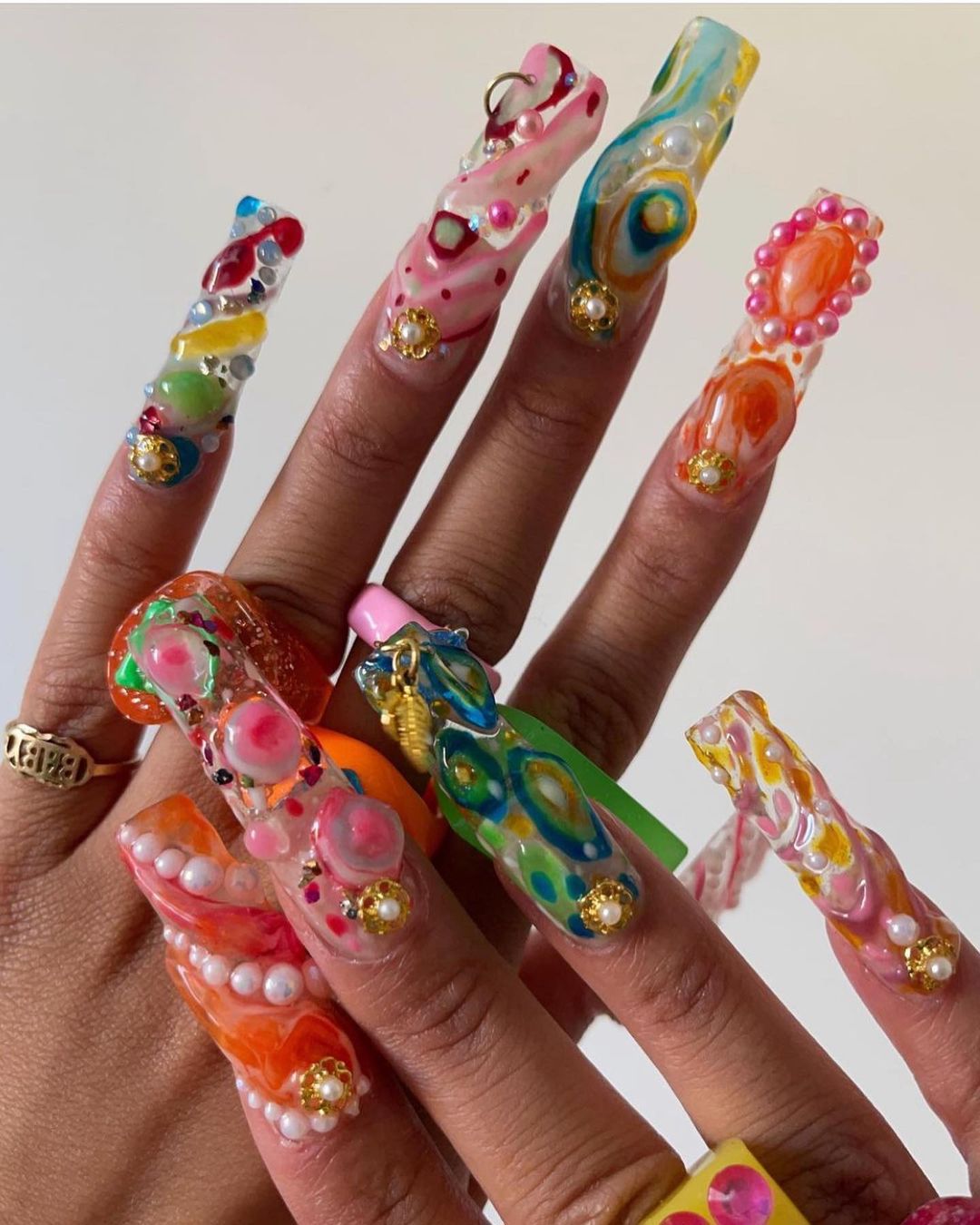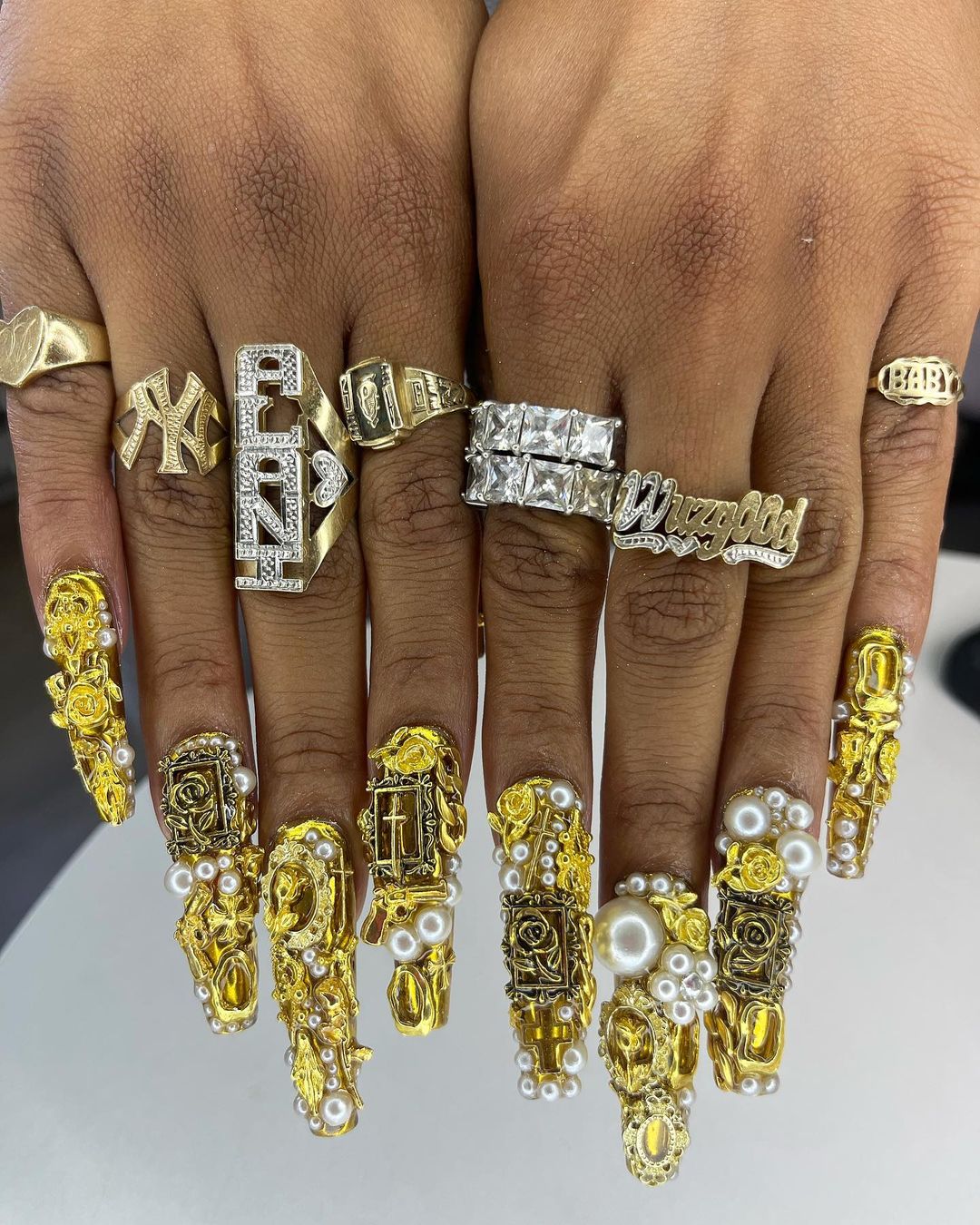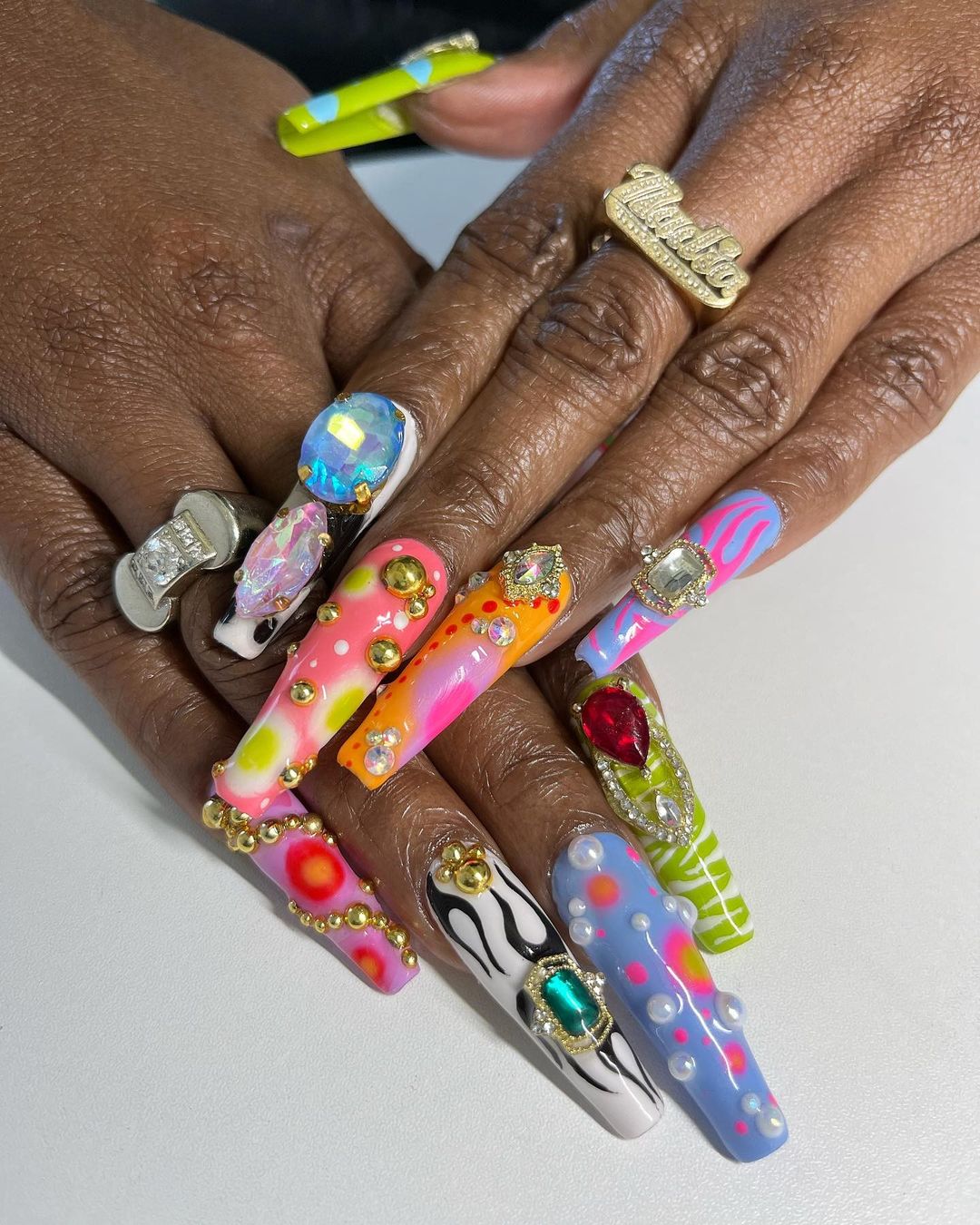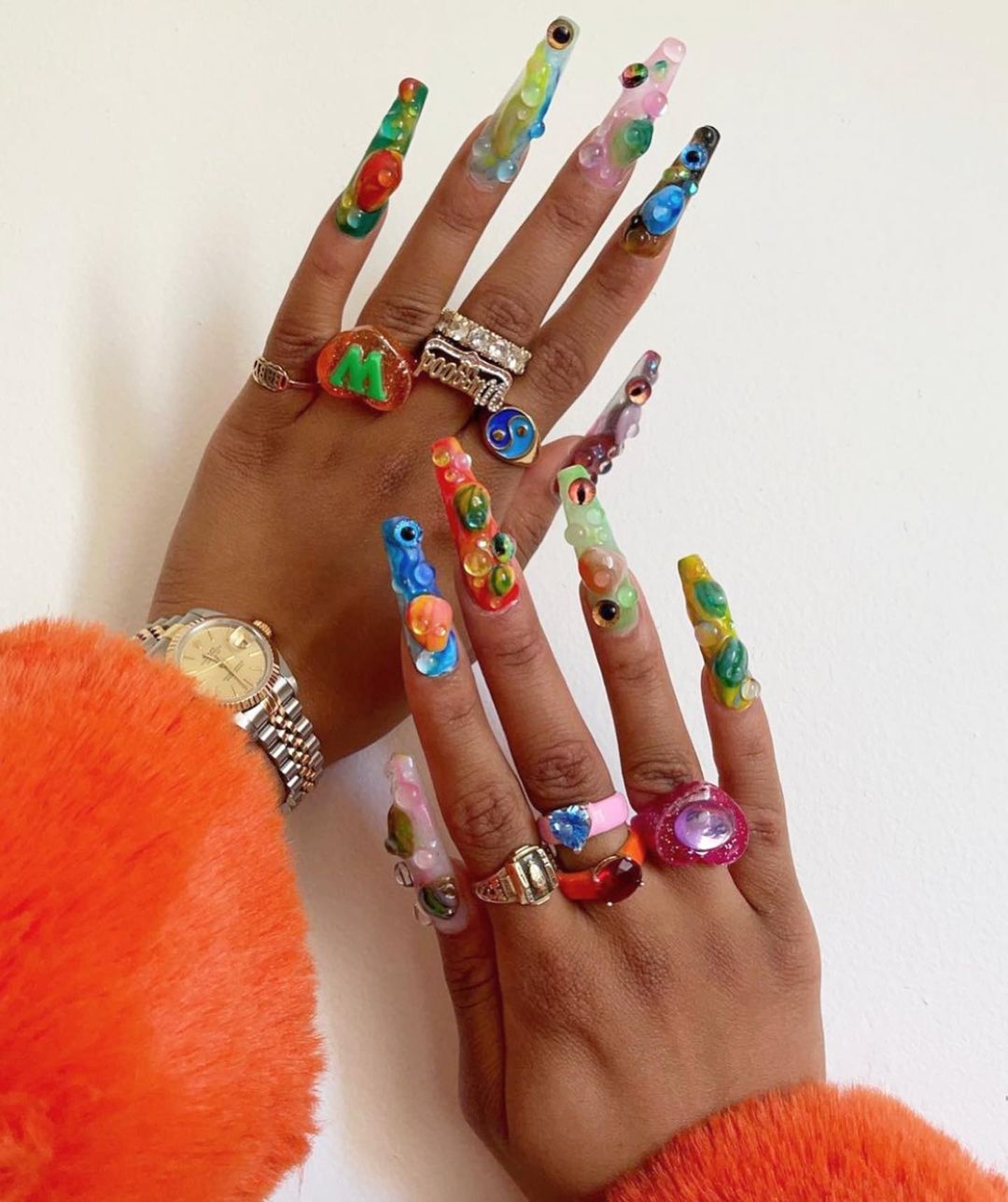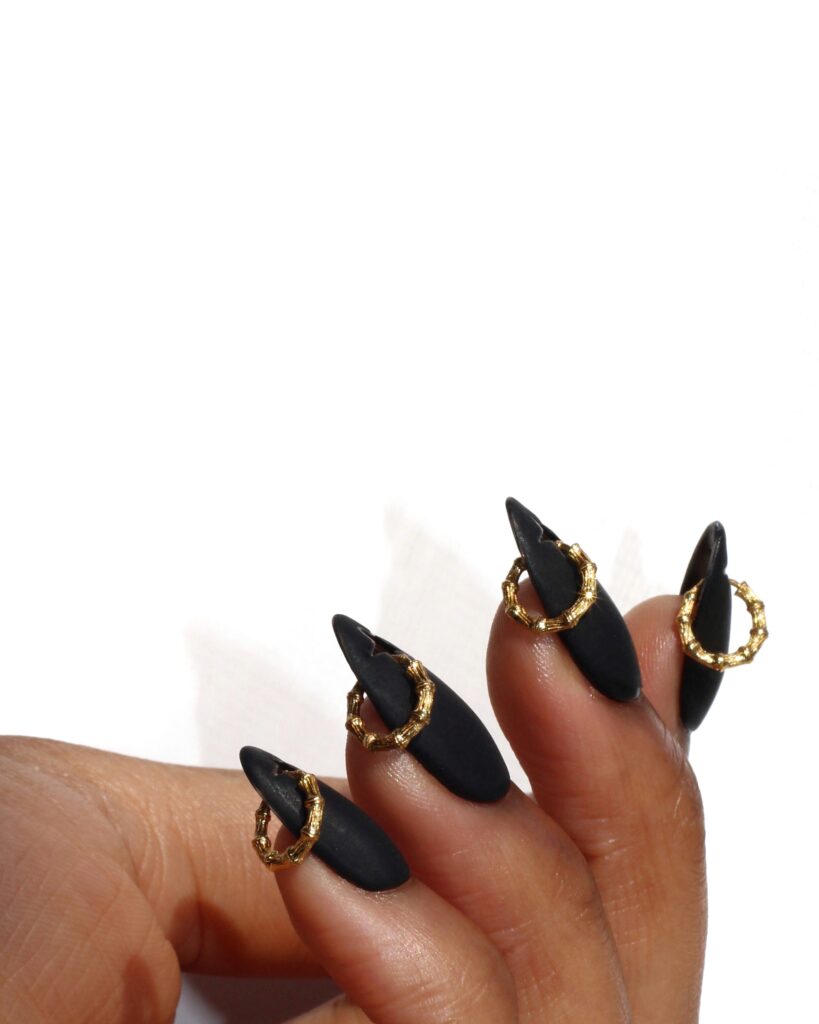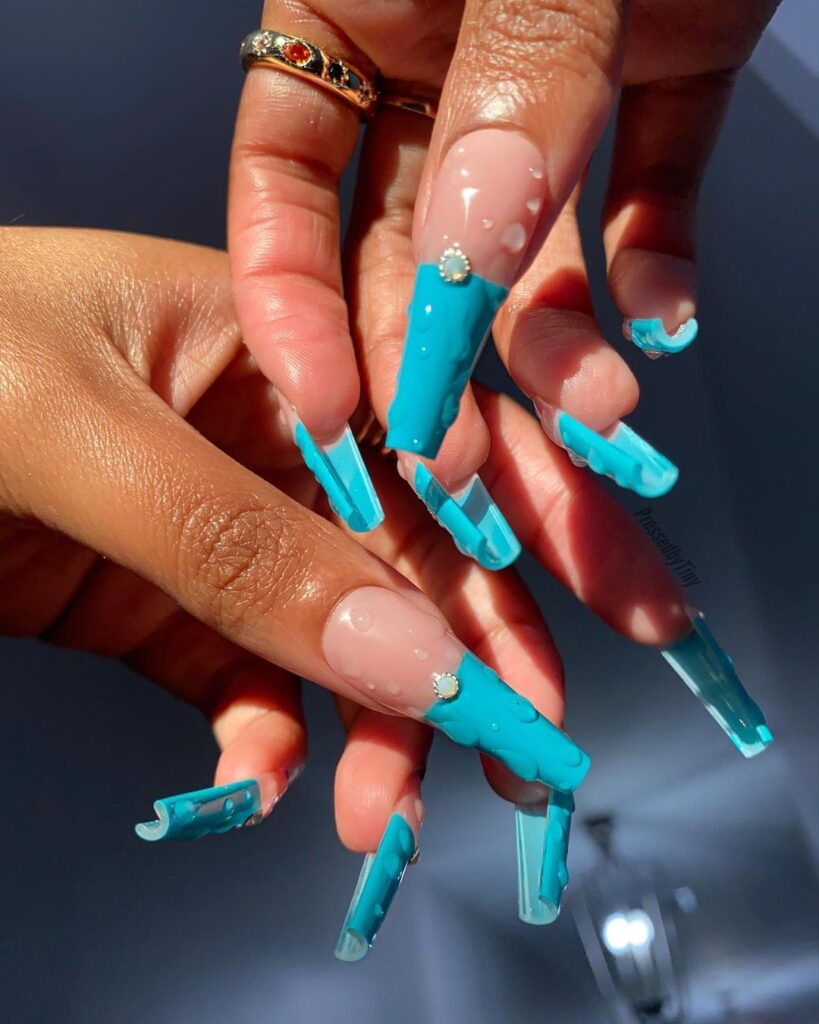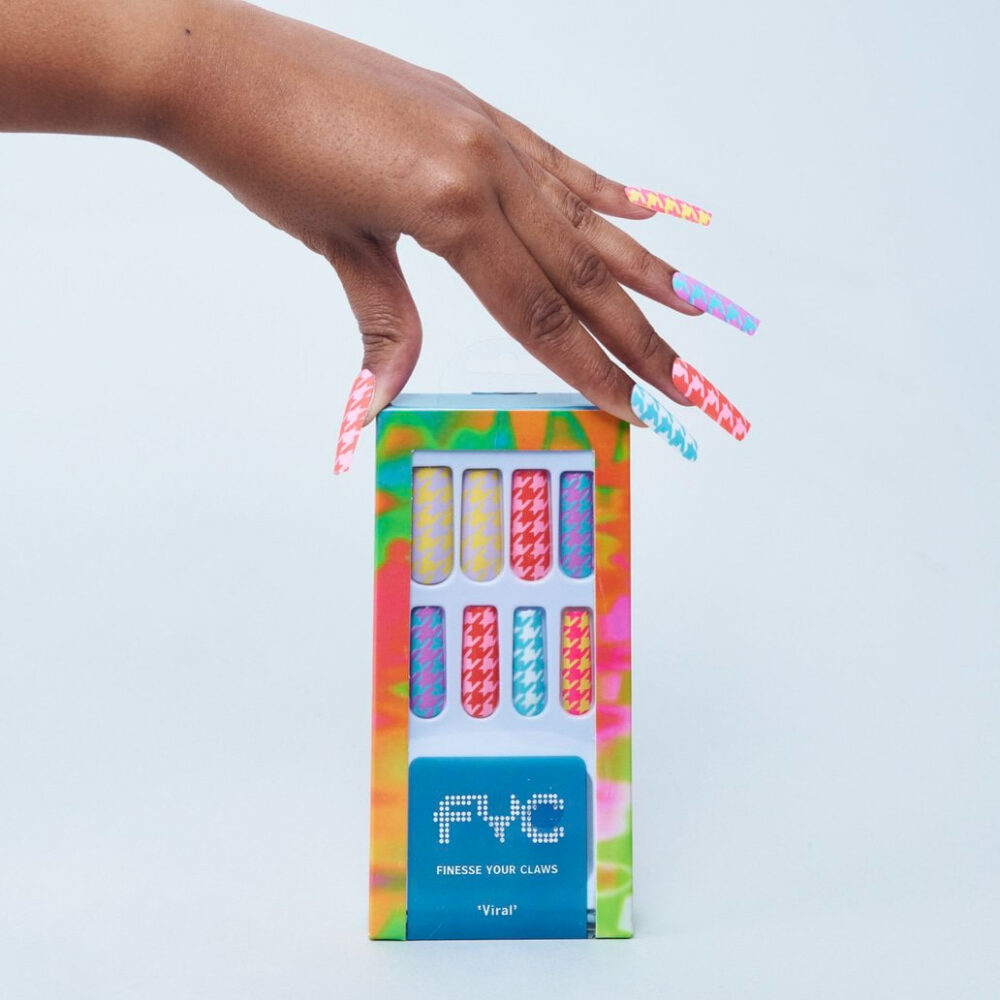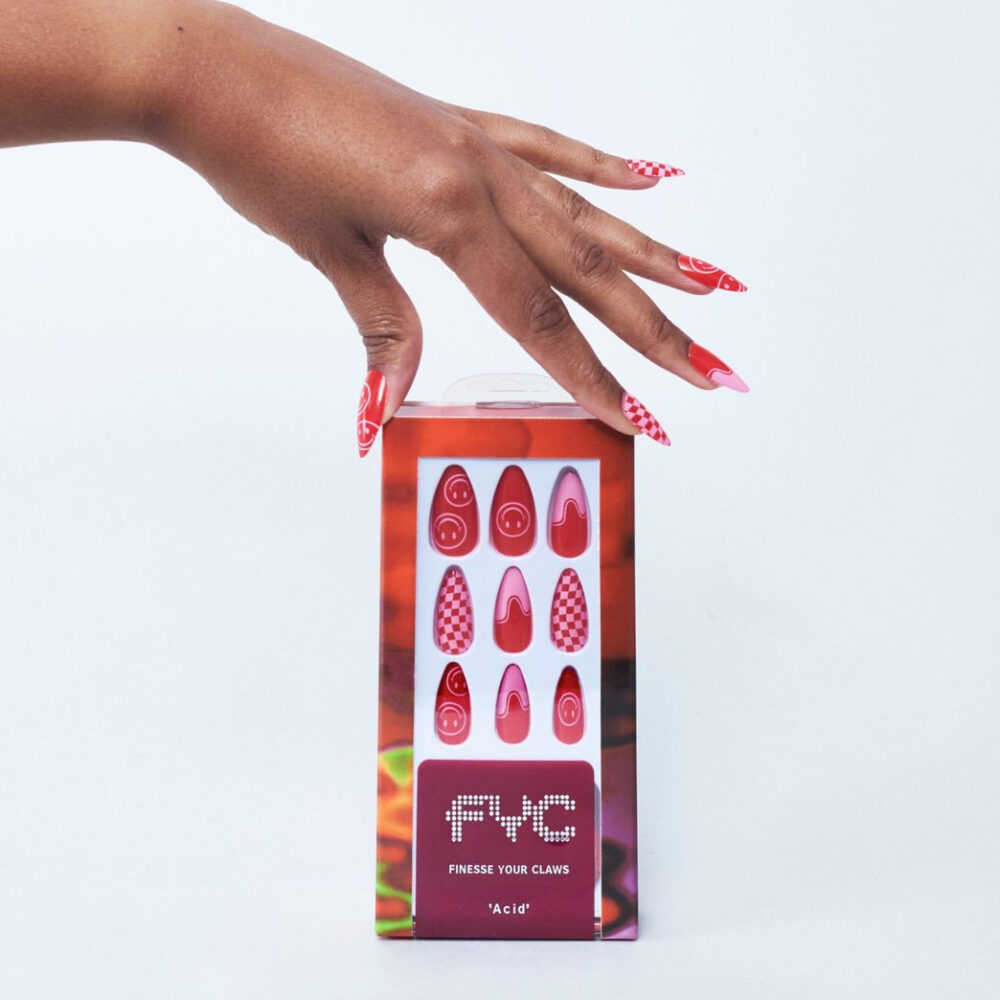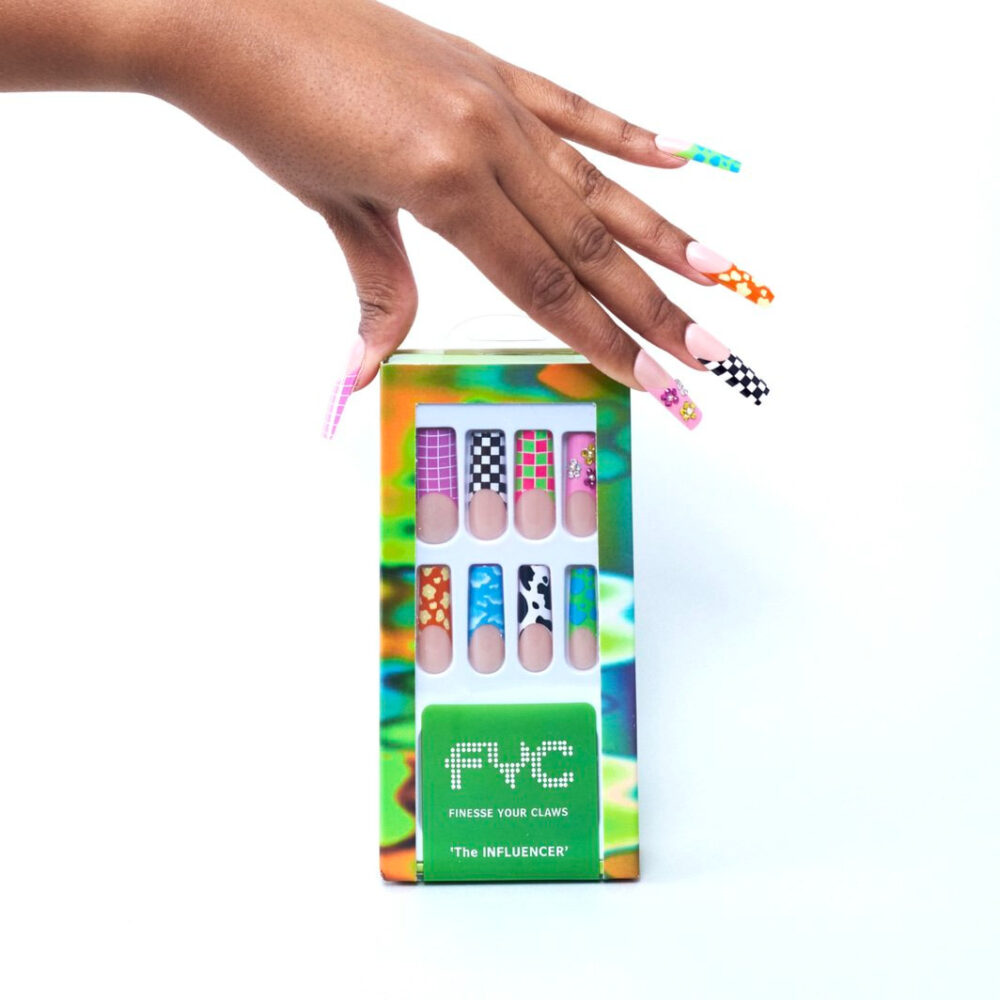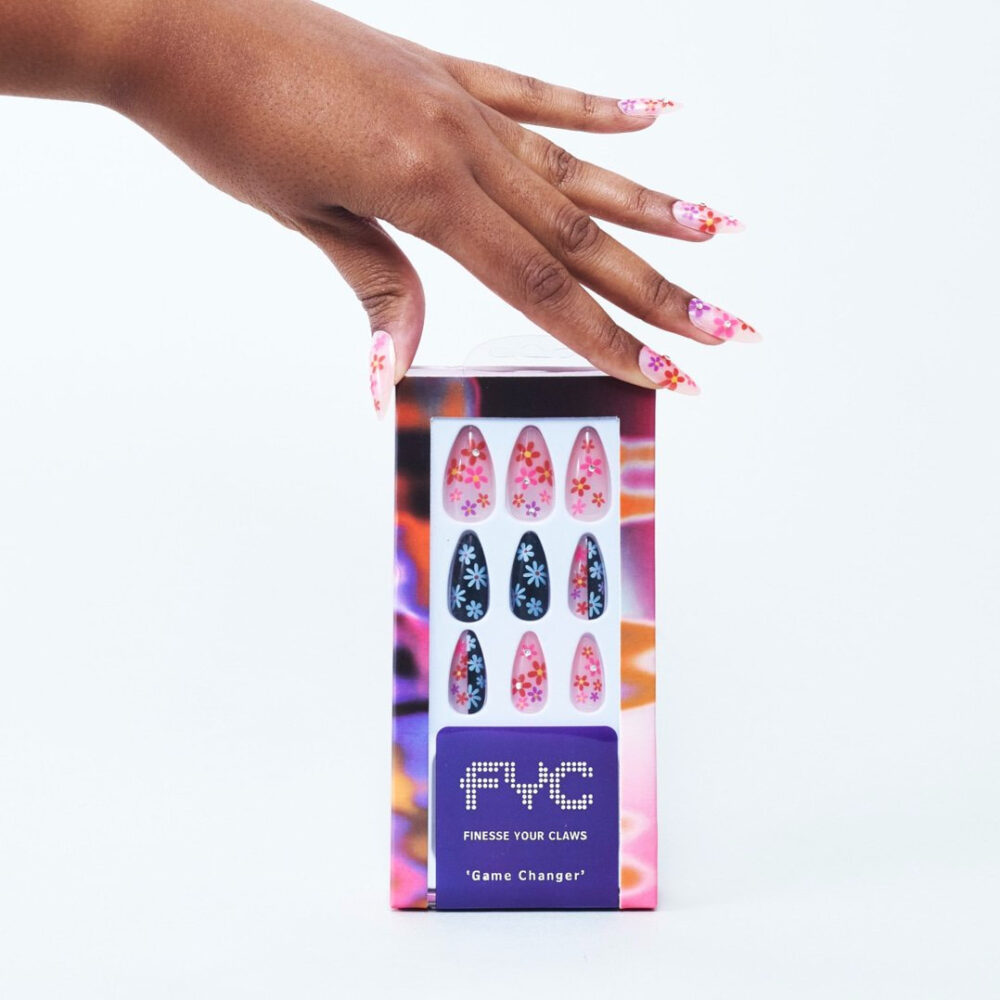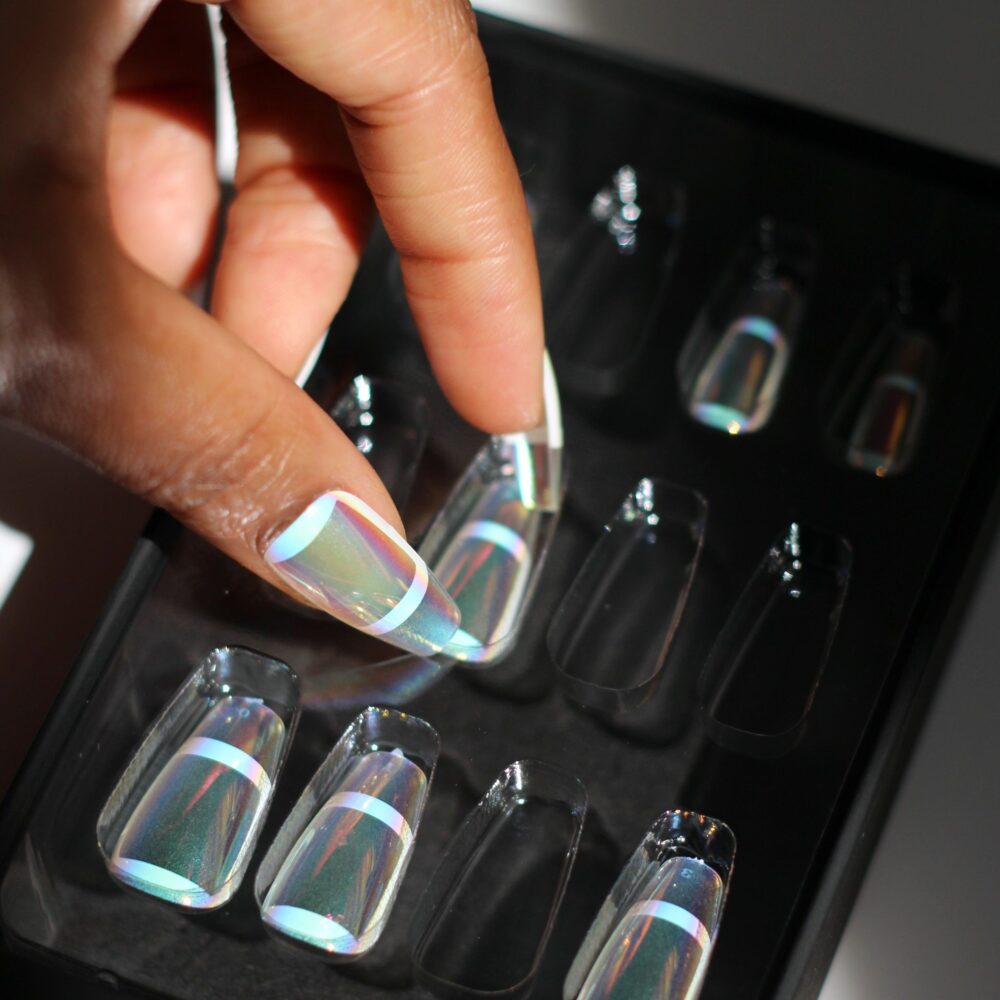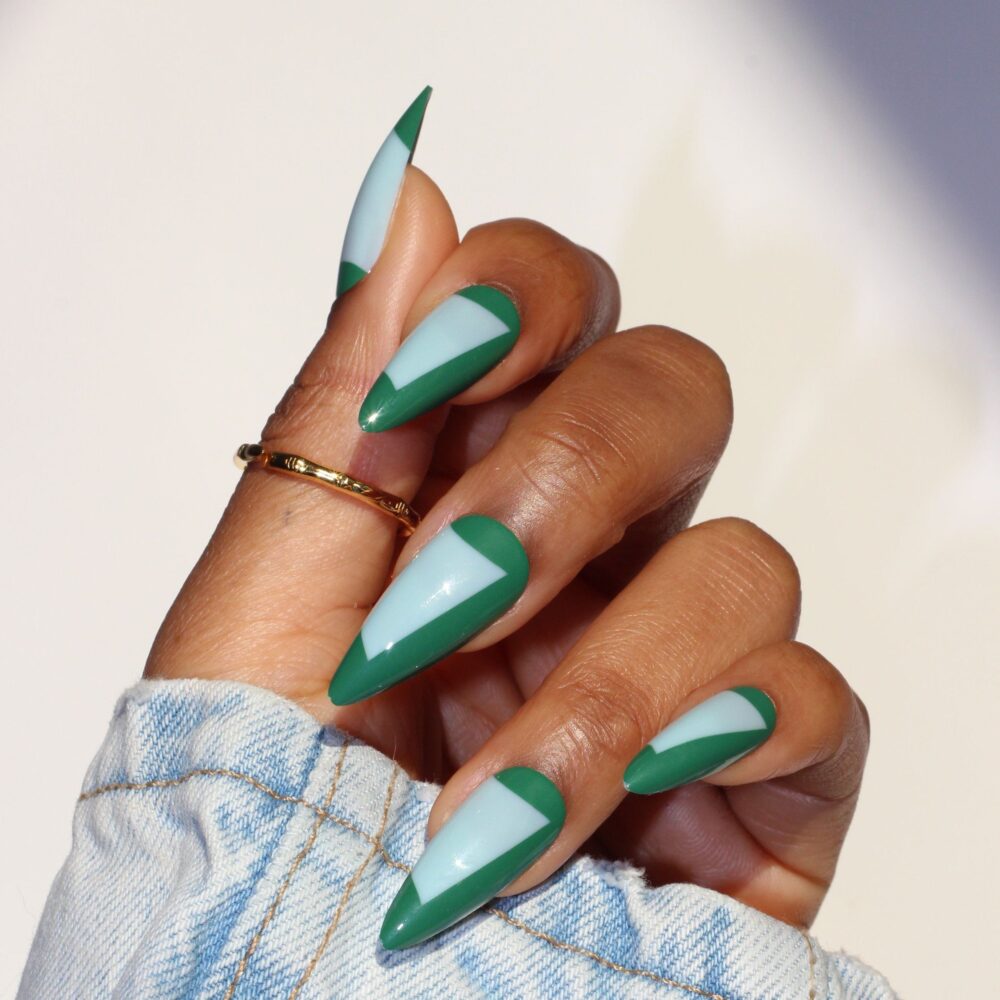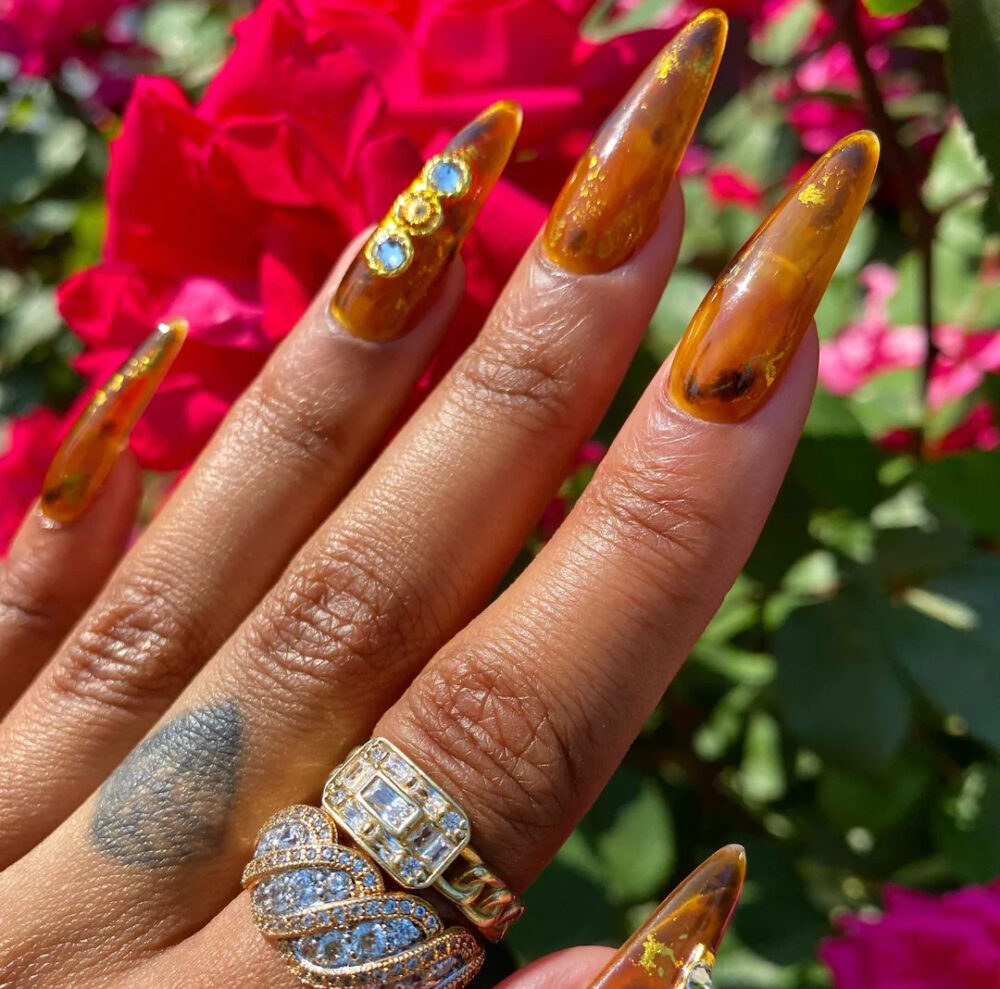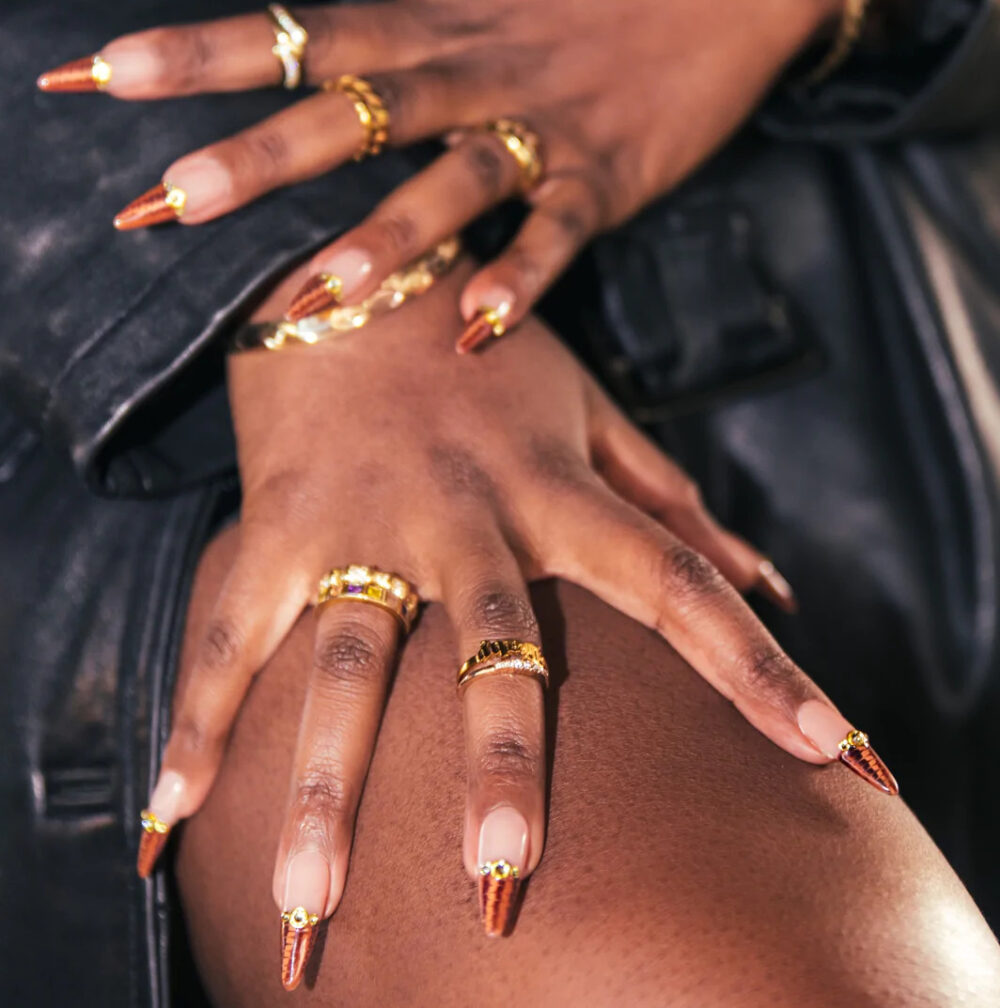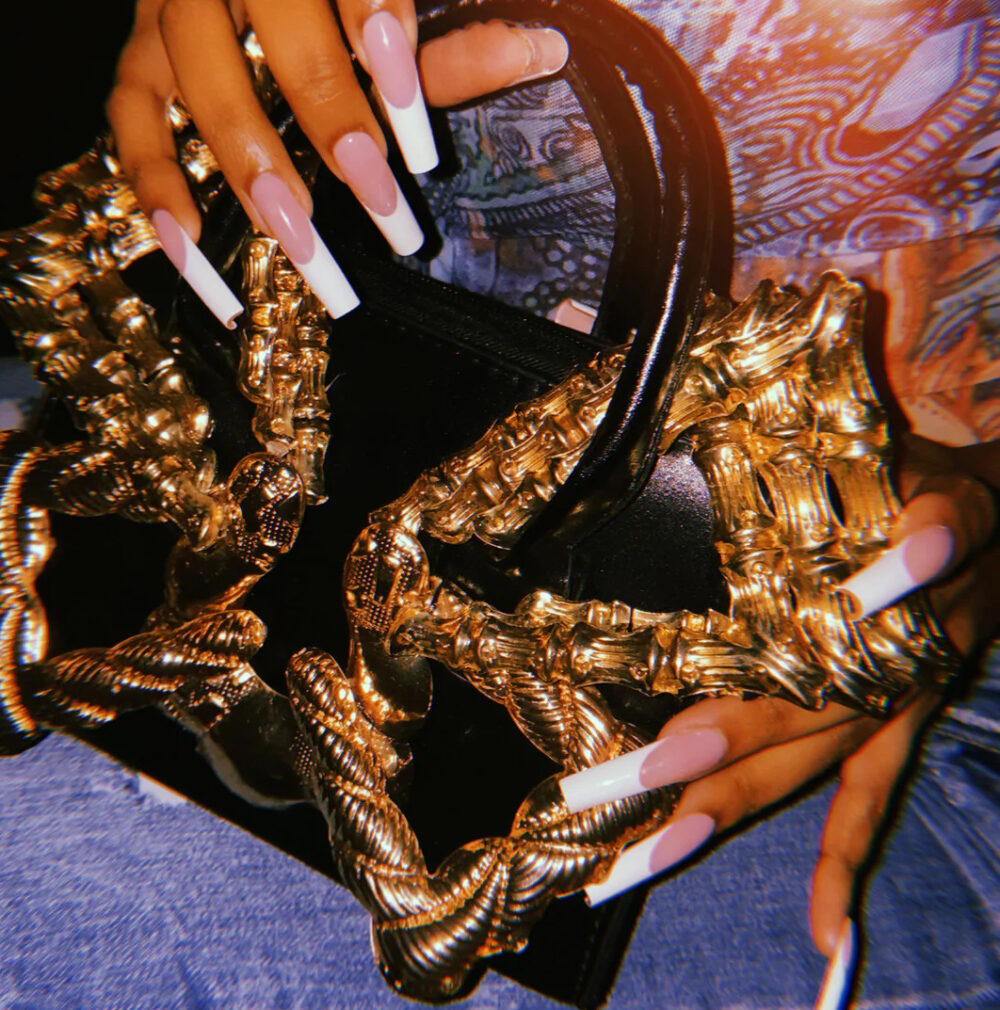“It’s our story, our ancestry. That doesn’t change, no matter our income or position in life.” – Melissa Samuel, Celebrity nail artist and founder of Finesse Your Claws
These decadent works of craftsmanship have always been more than a fad to Black women; a full set is a symbol of self-care. In many instances, it’s one of few affordable self-care options, as opposed to a luxe spa experience or a fancy vacation that’d require money and potentially time off from work. In an essay for BuzzFeed News, journalist and author Nichole Perkins writes that her mother “raised three children on the meager salary of a licensed practical nurse, but always made sure to treat herself to the luxury of a manicure. In today’s language, it was her form of self-care, a way of making sure she provided for herself as she took care of everyone else.” Perkins continues that she sees the same “act of self-care” among low-earning professionals, like fast food workers and teachers, “who may not be wealthy, but want to give themselves a small, affordable treat.” Celebrity nail artist and founder of Finesse Your Claws, a brand that sells press-ons, accessories and nail care, Melissa Samuel tells The Soulhaus that a lot of Black women, regardless of income, factor routine manicures into their budget. “We don’t just paint our nails — it goes beyond who we are as individuals,” she says. “It’s our story, our ancestry. That doesn’t change, no matter our income or position in life.”
Designed nails are also a form of self-expression and autonomy for Black women across socioeconomic statuses. In a society where Black women are policed for their image — arguably more than any other group of women — opting for a set is in many ways a fat, “F*ck you!” to biased beauty standards and the messaging telling us to not take up too much space. It’s beautiful and radical to manicure melanated hands, whether a dainty and neutral set that rebuts “I am soft and feminine” in the face of cartoonists who depict Black women as hypermasculine caricatures, or a loud and curved set that screams “I’m here!” to corporate America and preachers of respectability politics. And this refreshing audacity to express oneself in historically mundane settings is only on the incline among modern Black women who have both the qualifications to occupy these spaces, and the conviction to maintain their cultural identity. Samuel says that “Black women are currently the fastest expanding group of entrepreneurs,” in addition to rising up ranks in conservative sports, corporate, and political arenas. “So we are no longer searching for social acceptance.”

